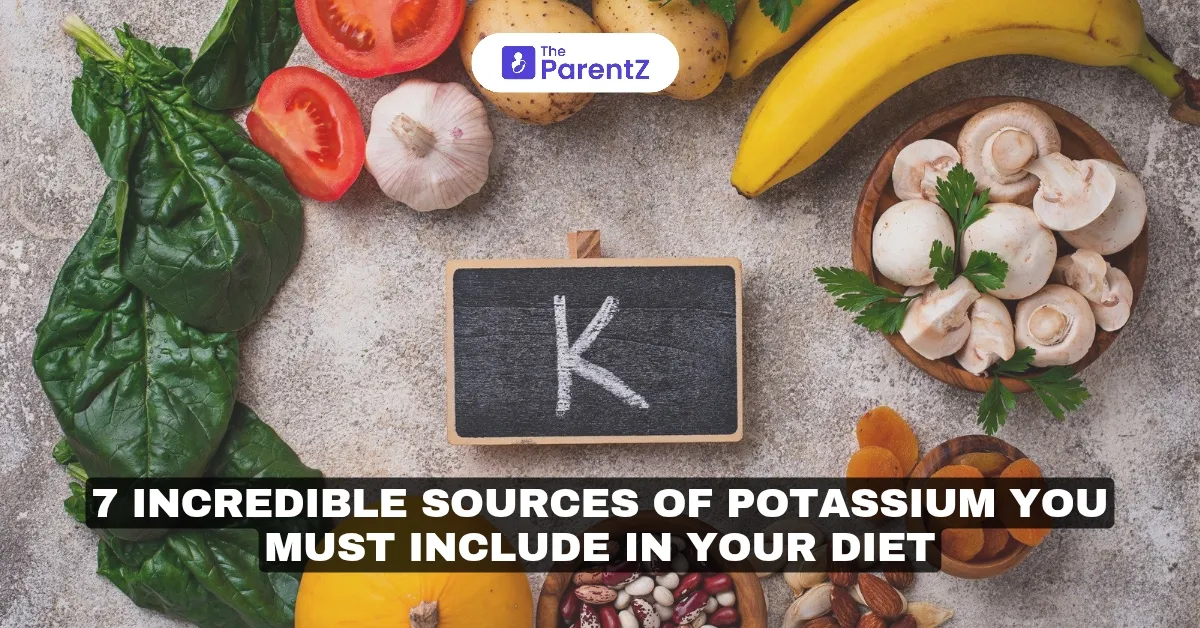Experiencing muscle cramps out of nowhere, feeling unusually fatigued, or noticing a sudden dip in your energy lately? Well, that might be a sign your body is asking for more potassium!
Potassium is an essential mineral that keeps your heart beating steadily while supporting muscle function and helping regulate fluid balance in the body. Besides, it is even needed for maintaining healthy blood pressure.
According to the National Institutes of Health, adults need about 2,600–3,400 mg of potassium per day. However, most people fail to meet this daily requirement.
While bananas are often considered one of the best sources of potassium, they’re not the only ones. Read this article to explore the seven best potassium-rich foods you need in your diet.
Sweet Potatoes
Sweet potatoes are an amazing source of potassium.
Did you know that just a medium-sized baked sweet potato provides around 541 mg of potassium?
That means you get 12 percent of the daily recommended intake all at once. Moreover, sweet potatoes are also packed with fiber, vitamin A, and antioxidants—your way to all-around nutrition.
Spinach
Leafy greens, especially spinach, are among the most nutrient-rich foods you can eat.
Just a one-cup serving of cooked spinach contains around 839 mg of potassium, which equals 18 percent of the daily requirement.
Besides being rich in potassium, spinach is also rich in iron, magnesium, and vitamins A and C—must-haves for good health.
Avocados
Avocados don’t just contain heart-healthy fats, but did you know they are also an excellent source of potassium?
A 100-gram serving of avocado contains about 485 mg of potassium, and a whole avocado can provide up to 975 mg!
That’s nearly 28 percent of the daily recommended intake. Moreover, avocados are also rich in fiber and antioxidants.
White Beans
When it comes to plant-based potassium sources, white beans are an excellent choice.
In fact, one cup of cooked white beans provides a whopping 1,189 mg of potassium—nearly over 25 percent of your daily requirement. Besides, they are also high in protein and fiber, which are essential for good gut health.
Salmon
Salmon is often known for its omega-3 fatty acids. But besides that, it’s also a great source of potassium.
Just a 100-gram serving of cooked salmon provides about 534 mg of potassium.
Did you know that eating salmon regularly can also help reduce inflammation and improve brain function?
Coconut Water
Surprisingly, coconut water is an excellent source of potassium—so you don’t just get hydration but plenty of other benefits too. Just one cup contains around 600 mg of potassium.
Furthermore, it also replenishes electrolytes and helps prevent muscle cramps. For athletes and people who sweat a lot, coconut water is a great drink.
Yogurt
Unfortunately, dairy products are often overlooked as sources of potassium. However, yogurt, particularly, is a great way to boost your potassium intake.
Just one cup of plain yogurt contains about 573 mg of potassium, which is nearly 12 percent of your daily requirement. The best thing—it’s also rich in probiotics, which are needed for good gut health and digestion.
Conclusion
Potassium is an essential mineral that plays a significant role in maintaining good health. Despite this, most people don’t get enough of it. By incorporating potassium-rich foods such as sweet potatoes, spinach, avocados, and white beans into your diet, you can easily boost your potassium intake and ensure a healthy heart, muscles, and nerves.





Be the first one to comment on this story.